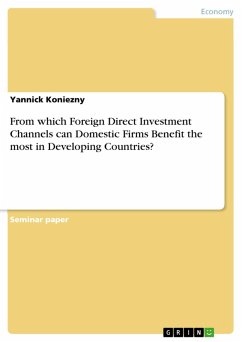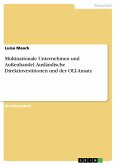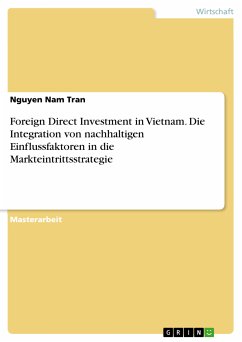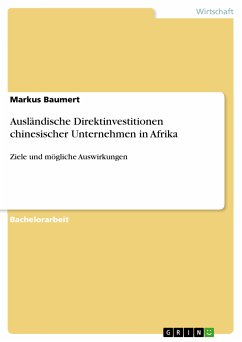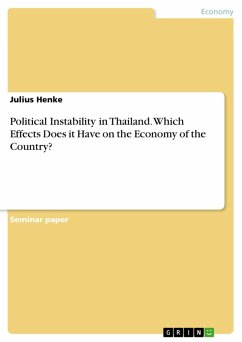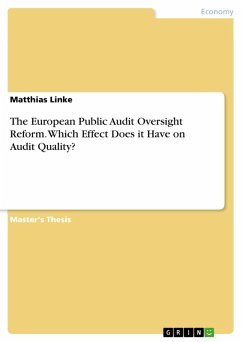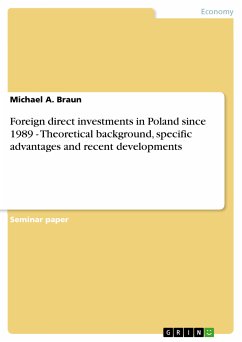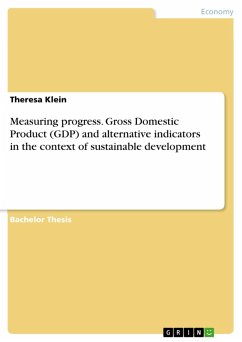Seminar paper from the year 2019 in the subject Economics - Foreign Trade Theory, Trade Policy, grade: 1,0, University of Dusseldorf "Heinrich Heine", language: English, abstract: In the wake of globalization, the importance of Foreign Direct Investments (henceforth FDI) has strongly increased. From 1990 to 2017 the amount of FDI inflows in the world has increased sevenfold. Most FDI expenditures flow between industrialized countries. But also developing countries show a strong increase in FDI inflows. Especially China became attractive for FDIs in the past years after reducing FDI restrictions. In the year 1978, before substantial reforms, almost no FDIs were made in China. 39 years later, in 2017, approximately 9.5% of the worldwide FDIs were conducted in China. In the same period, the Gross Domestic Product (GDP) per capita of China has increased fifty-six-fold. At the same time, the export ratio of China has increased from approximately 4.5 % to 19.8 %. These developments suggest that FDI may have a positive influence on economic growth and thus on firms' growth in developing countries. Therefore, governments of developing countries try to attract their country and companies for FDI by granting tax holidays or other benefits in the hope that the domestic economy can benefit from positive FDI spillovers. Companies have various reasons to make an investment in a foreign country e.g. lower wages, new market access, better resources, etc. All those motives are linked to the superior objective of profit maximization. According to John H. Dunning's "Eclectic paradigm", there are three conditions which must be fulfilled so that companies make an investment in a foreign country. First, the ownership advantage which means that a company must have an exclusive competitive advantage over competitors in the foreign market. Second, the location advantage which means that a company must benefit from the differences between home and host countries for example through lower wages or factor costs and third, the internalization advantage which means that a company must exploit its specific competitive advantages itself and not sell them to existing companies, e.g. in the form of licenses.
Dieser Download kann aus rechtlichen Gründen nur mit Rechnungsadresse in A, B, BG, CY, CZ, D, DK, EW, E, FIN, F, GR, HR, H, IRL, I, LT, L, LR, M, NL, PL, P, R, S, SLO, SK ausgeliefert werden.

